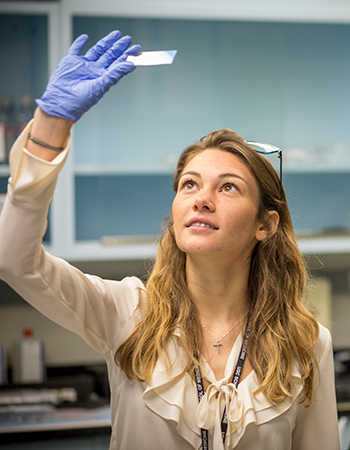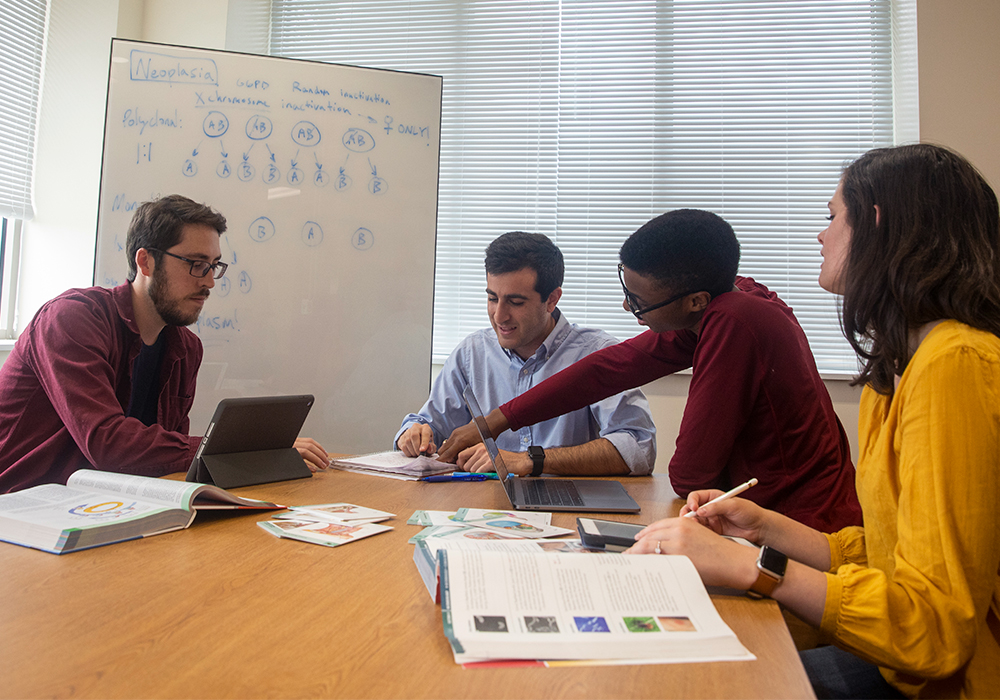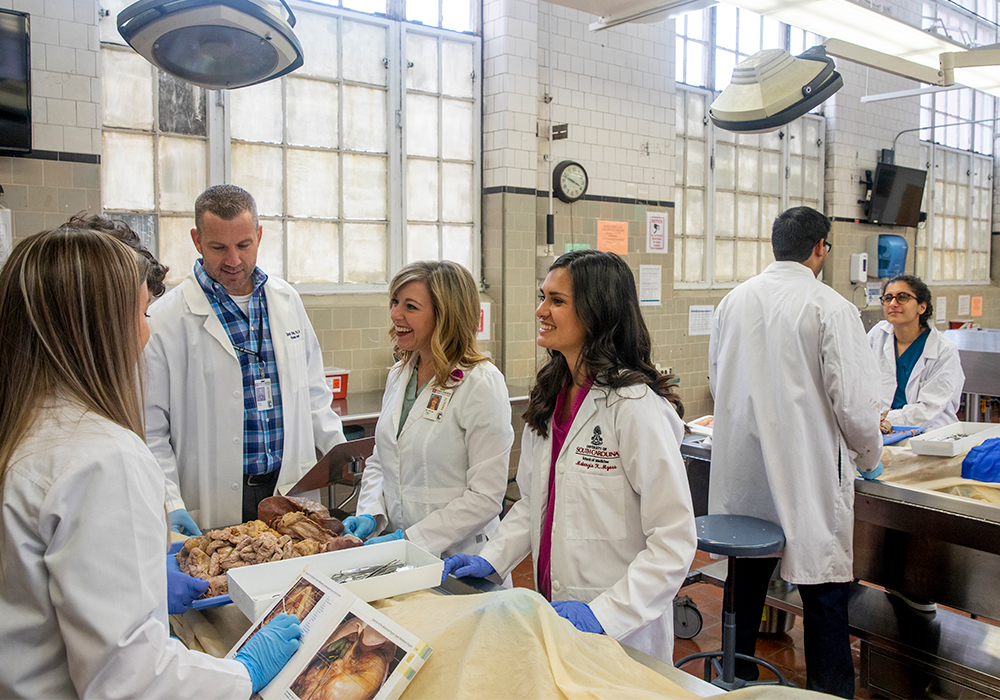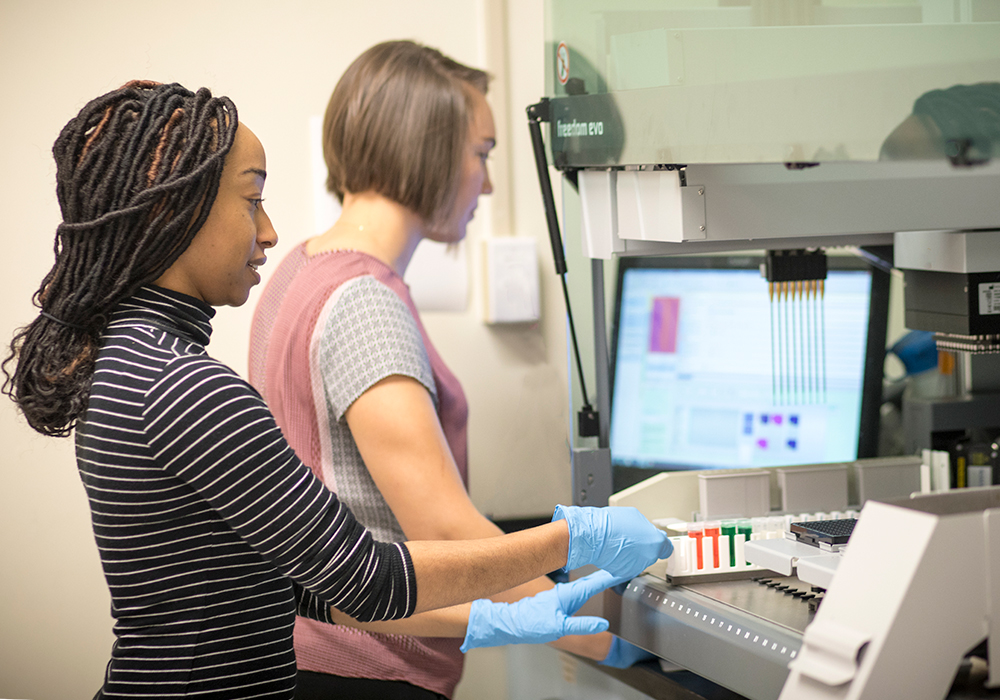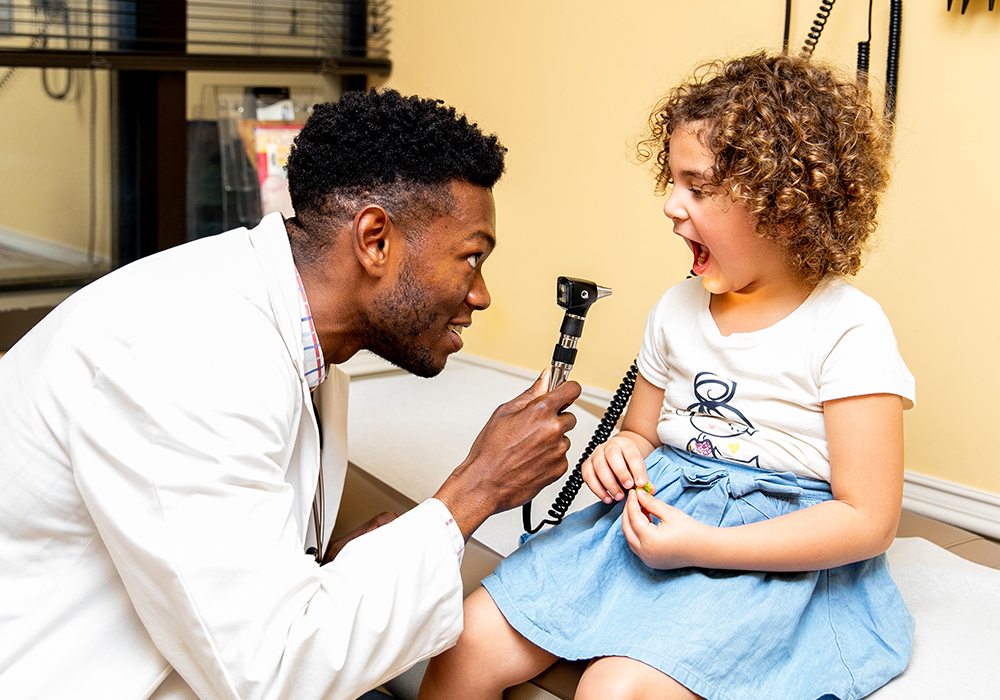
School of Medicine ColumbiaAt a Glance
The University of South Carolina School of Medicine Columbia is training future generations of physicians, health care professionals and scientists while supporting the growing health needs of South Carolinians.
Educational programs at the School of Medicine Columbia take full advantage of the University of South Carolina’s status as the state’s only Tier 1 research university. Students receive a leading-edge, exemplary medical education from a school where interdisciplinary research and quality patient care initiatives transform medicine in real time.
-

USC youth summer camps 2026
With only a few short months until summer, it’s time for parents to find summer activities for their children. USC offers a wide variety of summer camps for all ages and all interests from music to soccer, dance and engineering.
-

Board of Trustees updated on USC's comprehensive brain health initiative
Sarah Kirby, USC’s associate vice president for clinical affairs, briefed the Board of Trustees on Friday (Feb. 20) on the university’s efforts to develop a comprehensive system of care that could transform health care in the state — a statewide network of brain health clinics, a brain health center and South Carolina’s first stand-alone neurological and rehabilitation hospital.
-

Carolina Day 2026 at the State House highlights USC's impact
University of South Carolina alumni and advocates will gather at the S.C. State House for Carolina Day Feb. 17 to demonstrate how the state flagship is building momentum in producing a more prosperous and healthier South Carolina.
-

Researchers find rare intestinal parasite could affect 1 in 20 South Carolinians
Strongyloides stercoralis is an intestinal parasite rarely seen in the U.S. University of South Carolina researchers Dr. Melissa Nolan and Dr. Matthew Haldeman wondered if these worms might still be lingering under the radar in South Carolina. What they found surprised them.

Leaders in Ultrasound Education
In 2006, the University of South Carolina's School of Medicine Columbia became the first in the nation to integrate ultrasound technology throughout a four-year medical curriculum. Ultrasound education provides students with a beneficial career advantage as it further enhances the quality of care patients receive.
Integrated Ultrasound